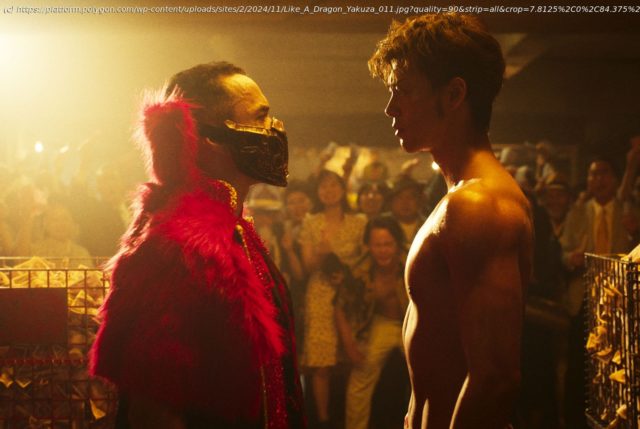Prime Video’s Like a Dragon show manages to capture the tone of the games, even when losing some of the goofier humor of the original.
Sega and Prime Video’s Like a Dragon: Yakuza is far from a one-to-one adaptation of 2005’s Yakuza, the game it is loosely based on. Like Takashi Miike’s 2007 Yakuza: Like a Dragon, the other previous attempt at a live-action Yakuza before it, the show takes certain key elements from an existing compelling narrative foundation and reinterprets them in its own new image, focusing on certain elements of the source material and discarding others. The most immediately evident change from the game is its overall darker, more self-serious tone — unlike the game’s surreal blend of melodramatic twisting crime drama and off-the-wall goofy substories, the show swings the pendulum entirely toward the former. It’s a big swing, considering how strongly associated these wacky elements are with the Like a Dragon brand as a whole. But a departure like this begs the inevitable question of adaptation: Does the world of Like a Dragon, the murky, crime-riddled red-light district of Kamurocho, work without the games’ trademark silliness to sometimes enlighten that darkness?
Contrary to popular misinformation across the fan base and subsequent outcry, the show’s divergences from the story, tone, and characters of the games is a feature, not a bug, of the adaptation. Speaking on Ryoma Takeuchi’s Kiryu in an interview with Polygon, head of Ryu Ga Gotoku Studio Masayoshi Yokoyama clarified, “It’s not an imitation or mimicking the game character. It’s more embodying the spirit of him and making him live again as a new character. So there’s no comparison. It’s just something completely different — and it’s cool.” When The Gamer specifically asked about the presence of substories within the show, the Dragon of Amazon himself, Takeuchi, stated, “We don’t have that much in this iteration. I think we’re digging into the human emotions and the emotional elements of the characters of this iteration. In a positive way, we’re departing from the game at the end of the day.”
To be clear, the tone of the narrative itself aligns well with the tone of the Like a Dragon games’ actual main plots. A serial killer hiding their identity, referred to only by a codename based on the sadistic calling cards of wounds they leave on their victims — it’s the Devil of Shinjuku in this show, but I could just as easily be describing the Mole in Judgment. There’s gripping, twisting mysteries and plots of betrayal within yakuza clans, sacrificing everything for the ones you love and the long-lasting consequences of split-second decisions. This type of dark melodrama is the lifeblood of the games’ core narratives — what makes this show feel different is the absence of the levity usually found in substories, minigames, and non-playable characters. But the Like a Dragon series, even after its explosion in popularity in the last few years, is primarily known to wider audiences for its moments of surreal humor, such as Yakuza Kiwami 2’s infamous scene of Kiryu mistakenly walking in on a yakuza group clad in adult diapers.
In the games, substories like these are included as breaks from the tense and often heartbreaking main story. You may have just watched a side character you’ve grown to adore get shot in the chest — but don’t worry, you can ignore the story for a few minutes and giggle as you watch Kiryu kindly trust a very sketchy palm reader and lose thousands of yen.






